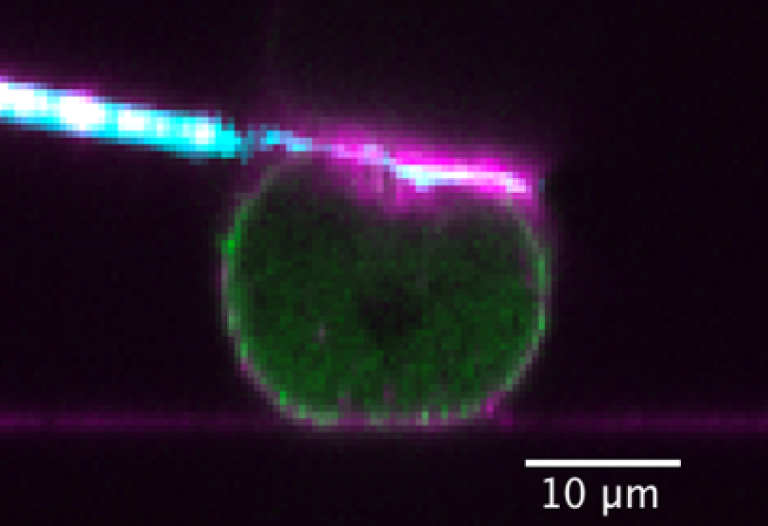Guillaume Charras is part of two new projects through the Physics of Life Strategic Priorities Fund
17 February 2022
The Charras lab is participating in one project focusing on understanding self-organisation in organoids and another seeking to understand the mechanics of early stage embryos.

The call sought to support internationally leading research, which requires collaborative, interdisciplinary working to address key questions at the interface between physics and the life sciences. The call of £18 m funded 9 interdisciplinary research projects each 3 years in duration.
Funded research projects were relevant to human, animal, plant or microbial systems and work within and across length scales, from molecules to complex organisms.
The Physics of Life programme is delivered through UKRI’s Strategic Priorities Fund by the:
- Engineering and Physical Sciences Research Council (EPSRC)
- Biotechnology and Biological Sciences Research Council (BBSRC)
- Medical Research Council (MRC).
This second phase is further enhanced by support from the Wellcome Trust.
The Charras lab is participating in one project focusing on understanding self-organisation in organoids and another seeking to understand the mechanics of early stage embryos.
Reverse engineering morphogenesis
Led by: Tim Saunders (University of Warwick), James Briscoe (Francis Crick Institute) and Guillaume Charras (UCL).
UKRI and Wellcome funding: £1.5 million.
How does the shape and structure of tissues arise as organisms develop?
The answer to this question has profound implications for our understanding of how our bodies are shaped, and life-changing treatments such as regenerative medicine and tissue engineering.
Using experimental testing and computer modelling, the researchers aim to determine how cells choreograph their movements and choose their identity to sculpt complex tissues, in a process called morphogenesis.
Early-stage embryo as an active self-tuning soft material
Led by: Kees Weijer (University of Dundee), Rastko Skepnek (University of Dundee), Julia Yeomans (University of Oxford), and Guillaume Charras (UCL).
UKRI and Wellcome funding: £1.7 million.
Gastrulation is an essential process during embryonic development that establishes the basic three-dimensional tissue organisation of the body plan.
In this project a combination of advanced imaging and modelling will be used to investigate the key biophysical mechanisms. These control the spectacular way in which thousands of dividing and differentiating cells self-organise to form an embryo.
This will improve our ability to prevent and treat the many congenital diseases such as heart defects and spinal conditions. These are caused by errors during gastrulation and is relevant to explaining how complex life has evolved on Earth.
 Close
Close

